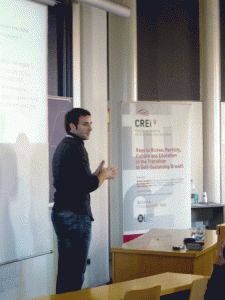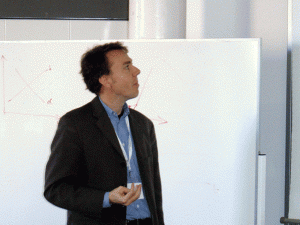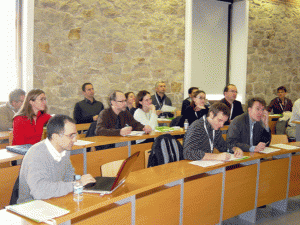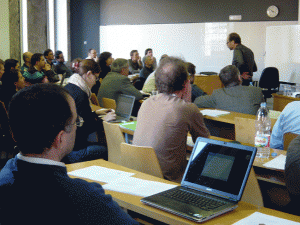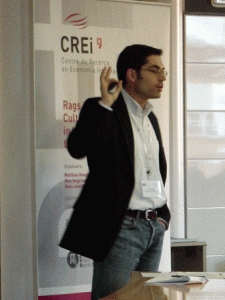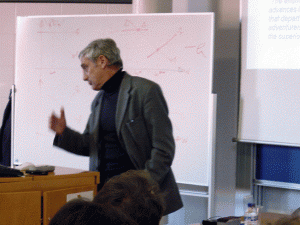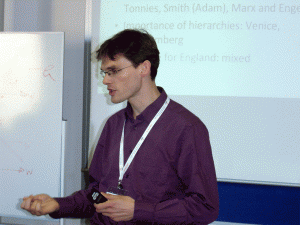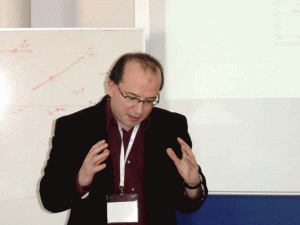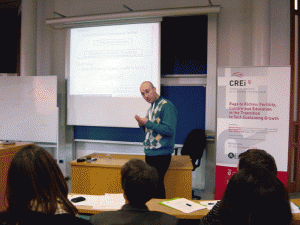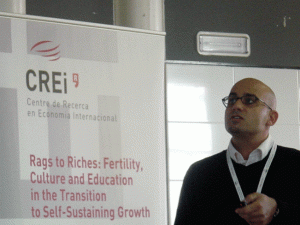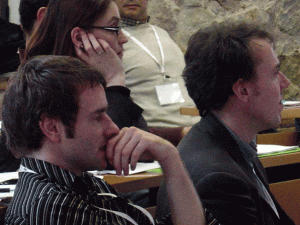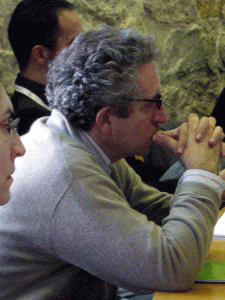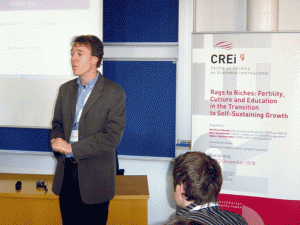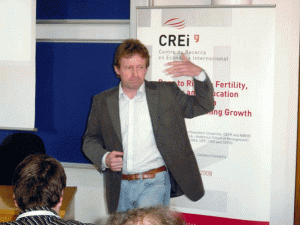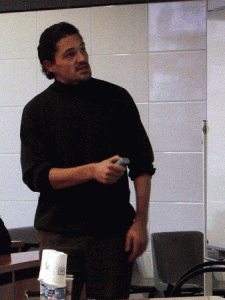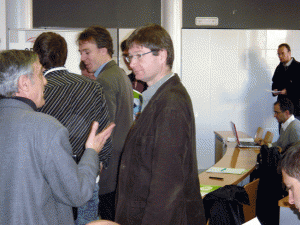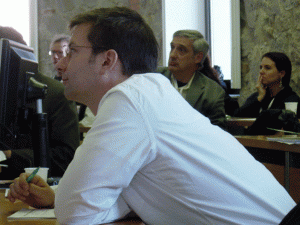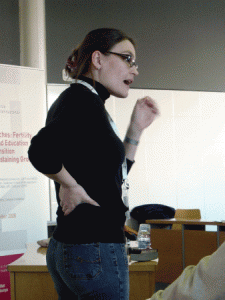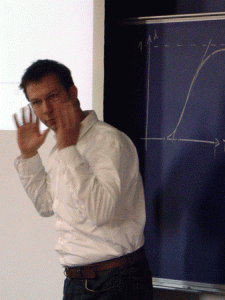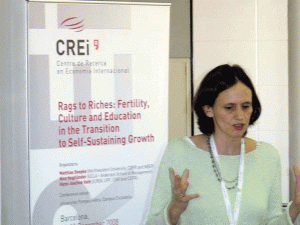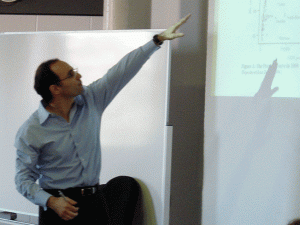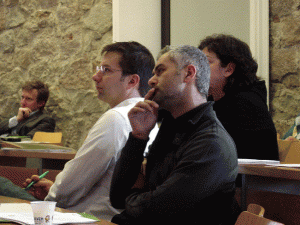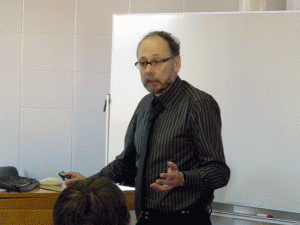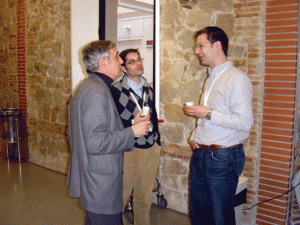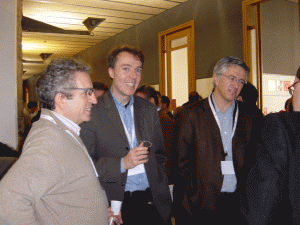Rags to Riches: Fertility, Culture and Education in the Transition to Self-Sustaining Growth
December 11-12, 2008
The "Rags to Riches" Conference was organized by Matthias Doepke (Northwestern, CEPR and NBER), Nico Voigtländer (UCLA-Anderson), and Hans-Joachim Voth (UPF, CREI and CEPR) with support from CREI and CEPR's Economic History Initiative.
The conference was developed around the unified growth theory, both as a review of what has been learned in the last decade and as to what steps can be taken in the future. Twelve contributions by outstanding economic theorists, applied economists, demographers, and economic historians put forward the current state of research on key aspects for unified growth such as demography (fertility, mortality, longevity, health and disease, etc.) and labour.
The programme consisted of four thematic sessions, namely Fertility and Economics; the Role of Children; Fertility, Food and Unified Growth; and Broader Perspectives, each of which tried to answer crucial issues for the unified growth theory, e.g. What were the mechanisms regulating population size, density, and living standards before the onset of rapid growth? What was the role of culture, knowledge, contraceptive technology, shifting incentives to have children and of government intervention?
As with other endogenous growth theories, the unified growth theory is consistent with the entire process of development, and in particular the transition from the epoch of Malthusian stagnation that had characterized much of the process of development to the contemporary era of sustained economic growth.







